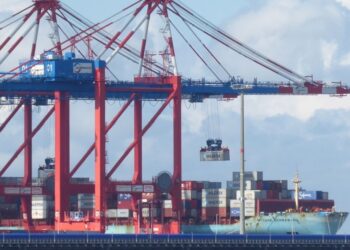Elif Dördüncü AydemirPresident

Areas of expertise
- Political Strategy
- Political Risk Assessment
- Campaign Management
- Team and Network Management in Politics
Education
- PhD, Political Science, University of Paris I: Panthéon-Sorbonne
- Master, Political Sociology, University of Paris I: Panthéon-Sorbonne
- Master, International Relations-Strategy, University of Paris I: Panthéon-Sorbonne
- BA, Political Science and Public Administration,Marmara University
Elif Dördüncü Aydemir is an advisory board member of The George Washington University Graduate School of Political Management. While working and setting winning strategies for over 180 campaigns around the world, she gives importance to academic presence in political science. She loves to work with students to convey her experience and knowledge to younger generations. She continues to work as a lecturer and gives seminars in prestigious universities around the world.
After graduating from Marmara University, Political Science and Public Administration Department, she continued her studies in Paris I Panthéon-Sorbonne University.
Elif Dördüncü Aydemir is an active member of IAPC (International Association of Political Consultants), EAPC (European Association of Political Consultants) and ISPP (International Society of Political Psychology).
She has completed her Master Degrees in International Relations-Strategy and also in Political Sociology from Sorbonne Paris I University where she continued to her PhD studies examining the political discourse of Turkish and Greek nationalisms. She is fluent and provides consultancy in English, French, Spanish and Turkish.
Latest Analyses & Insights on Elif's expertise
-
Markets may be sleepwalking into Trump’s next trade shock
President Trump’s threat to double the baseline “universal tariff” to 20% is not only an economic maneuver — it is deeply entwined with Washington’s strategic effort to rebalance global supply chains, weaken competitors’ industrial bases, and consolidate domestic and allied manufacturing capacities. This fits into a broader toolkit that includes export controls on semiconductors, subsidies for reshoring critical sectors, and the formation of “trusted” supply chains excluding China.
It is also part of a high-stakes geopolitical poker game. The U.S. is simultaneously pressing partners in Asia and Europe to side with it against China on trade, tech standards, and strategic commodities (like EVs, batteries, rare earths and shipbuilding), using the threat of tariffs as leverage.
July 11, 2025 -
U.S. seeks to enlist South Korea in curbing China’s shipbuilding dominance
Washington’s move to tap Seoul as a strategic partner in countering China’s growing grip on global shipbuilding underscores how industrial policy is becoming an increasingly sharp tool in the geopolitical contest with Beijing. The comments from South Korea show that the U.S. is not merely focused on short-term trade concessions, but on forging longer-term coalitions to push back against China’s rise in key manufacturing sectors.
China overtook South Korea as the world’s top shipbuilder in the early 2010s, and now accounts for roughly 50% of global ship production by tonnage, compared with South Korea’s roughly 30%. China also dominates orders for certain vessel types, including bulk carriers and container ships, and is advancing quickly in LNG carrier technologies, a sector traditionally led by Korea.
July 11, 2025 -
Germany pushes for a fair deal with the U.S. as tariffs near
German exporters, through their influential trade body BGA, are urging the European Commission not to strike a quick trade deal with the United States at any price, warning that Europe must secure terms that protect its industrial and commercial interests. The intervention highlights the deep unease within Europe’s export-driven powerhouse as it faces the stark reality of U.S. protectionism under President Donald Trump.
President Trump has set an August 1 deadline to impose sweeping new tariffs on dozens of countries, including on European automobiles and industrial goods, as part of a wider strategy to rebalance U.S. trade relationships and bolster domestic manufacturing. The approach is also aimed at drawing allies into his effort to isolate China from critical supply chains.
July 11, 2025



